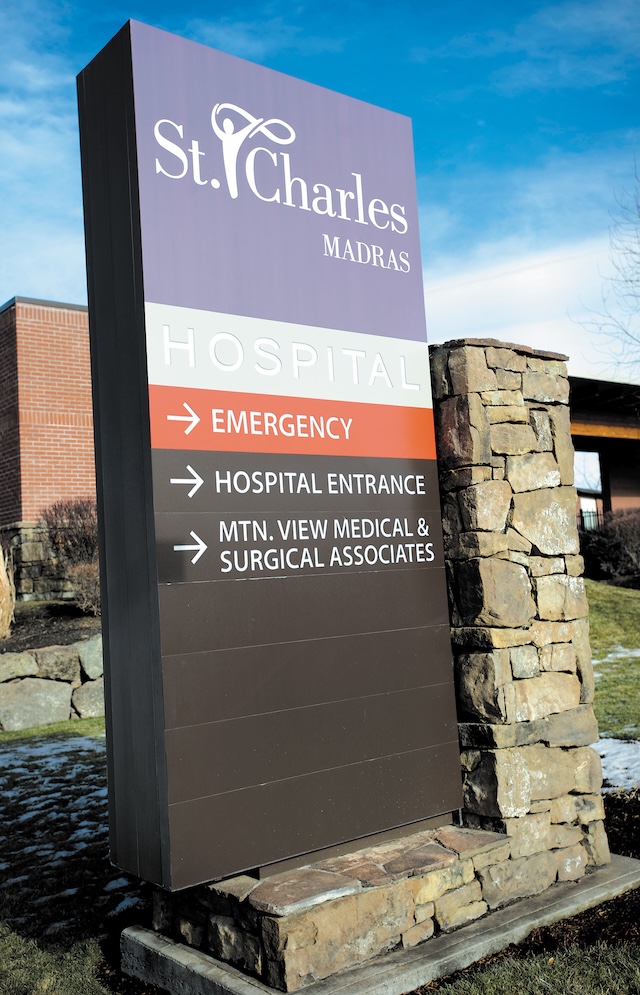Guest column: Focus on infrastructure funding to urgently tackle our housing crisis
Published 9:00 pm Thursday, October 19, 2023

- Harlan
Affordable housing options for all are the cornerstones of safe, equitable, and thriving complete communities. To tackle Central Oregon’s housing crisis, we need bold, effective policies and investments that urgently deliver abundant housing.
Good news: We have some low-controversy, high-yield solutions before us to make this happen. Better yet, many of them also bolster climate resilience and human health.
Trending
At the top of the list is land readiness.
Land readiness means land within our existing Urban Growth Boundary (UGB) can be developed into housing because it is served by essential infrastructure. Infrastructure improvements like pipes, sidewalks, and roads are necessary for the creation of new housing. Lack of funding for these improvements is one of the most significant barriers to available land in our city becoming ‘shovel-ready’ for housing development.
Consider this: in 2016, Bend added over 2,000 acres to its UGB to accommodate over 5,000 new housing units. But over the past seven years, less than 15% of total possible housing units have been built in these expansion areas. Why?
A lack of infrastructure funding is at the core of the answer. Delivering new water, sewer and transportation infrastructure to our city is expensive and complex. Every city in Oregon faces staggering housing-related infrastructure needs, and existing funding mechanisms aren’t cutting it. There is a $101 million funding gap for transportation infrastructure in Bend’s expansion areas alone. This doesn’t include sewer, water, and other utilities, which substantially increase this funding gap. It’s the same story in places like the Bend Central District and Park Place (House Bill 4079): Infrastructure costs have been a huge barrier to meeting our housing needs.
In a recent City Council presentation by the city’s growth management team, staff noted Bend has “plenty of land” — and that Bend’s 2023 buildable land inventory identified current capacity for over 23,000 housing units. This highlights the need to focus on solving for the most pressing challenge we’re facing: increasing housing production and affordability on available land within our city.
New, substantial, and sustained state resources for housing infrastructure funding are needed to tackle this challenge, close the funding gap, and urgently address our housing crisis. A good place to start is committing state resources to help build affordable and middle housing that the market is unlikely to produce on its own. This includes revolving loans and grants that target investments in infrastructure and development readiness, system development charges, SDCs, and gap funding and loan guarantees for affordable and diverse housing options.
Trending
Right now, Bend has available land within its UGB that can become much-needed housing if it is served with infrastructure. Numerous expansion and opportunity areas have been designated in our city to help us grow well and with intention. Infrastructure investments in these key areas, such as the Bend Central District, will unlock critical housing potential and help create the complete communities we need. These places can accommodate more of Bend’s rapid growth and deliver new affordable housing options close to essential services with options for biking, walking, and rolling. This is where transformative infrastructure investments can help address Bend’s most pressing housing issues and deliver multiple livability, climate, and health benefits to our community.
There are a lot of policies and options on the table for addressing Oregon’s housing crisis — few will have the positive impact that robust, sustained infrastructure funding will. And our current state revenue forecast is fairly rosy. As Bend City Councilor Anthony Broadman recently wrote, now is the time to take advantage of increased bonding capacity to pay for housing infrastructure. So, we’re counting on our elected leaders to focus on areas of maximum impact that help cities make the most of what they have. Moving infrastructure funding forward during the 2024 legislative session is one of the most effective ways to increase housing quantity, choice, and affordability in Bend and every Oregon community.








